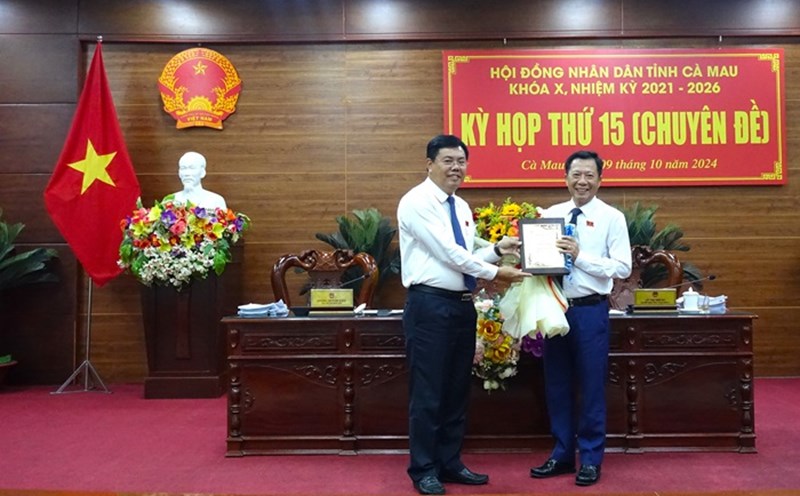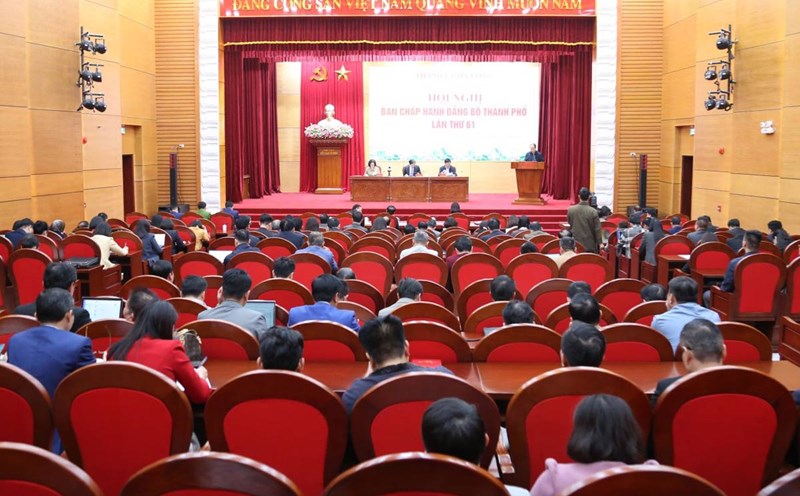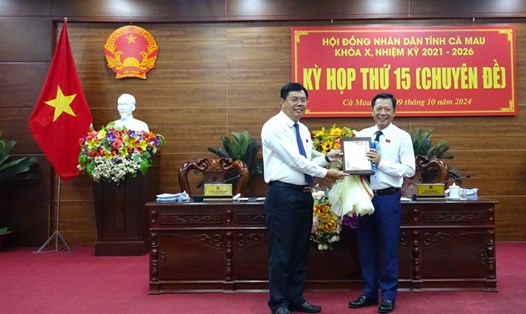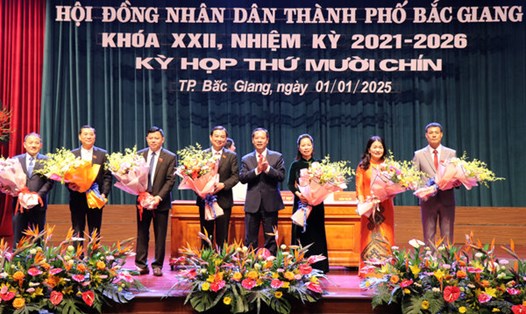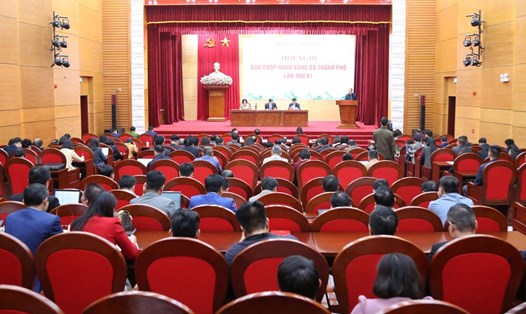Deputy Minister of Home Affairs Truong Hai Long has just signed the submission and documents of the draft Law on Organization of Local Government (amended) to the Government.
According to the Ministry of Home Affairs, the local government organization model has not been designed to suit urban areas, leading to the National Assembly having to issue separate resolutions to regulate the urban government organization of Hanoi and Ho Chi Minh City (at the 8th session of the 15th National Assembly, a resolution on the urban government organization in Hai Phong was continued to be considered and issued).
Most administrative units across the country organize urban government levels including People's Councils and People's Committees, leading to the cumbersome and multi-layered organization of local government apparatus at all levels, not ensuring the goal of streamlining.
Thoroughly grasping the guiding viewpoints of the Party, National Assembly, Government and Central Steering Committee leaders on summarizing Resolution 18 on streamlining the apparatus of the state political system and resolutely eliminating intermediary organizations, the draft law proposes to regulate the model of local government organization in many directions.
Accordingly, for urban governments, in centrally-run cities, cities belonging to centrally-run cities, towns, and townships, a full local government level will be organized, including the People's Council and the People's Committee.
In districts and provincial cities; wards in districts; wards and communes in provincial cities and centrally run cities, there is no People's Council but only a People's Committee.
The People's Committee in places where there is no People's Council is an administrative agency directly under the People's Committee at a higher level, operating under the administrative head mechanism. The Chairman and Vice Chairmen of the People's Committee are directly appointed by the Chairman of the People's Committee at the higher level.
For rural government, according to the draft, at the province, district, commune, and town levels (except communes belonging to provincial cities and communes belonging to cities belonging to centrally-run cities), the organization of local government levels includes the People's Council and the People's Committee.
For administrative units in islands, island districts do not organize subordinate commune-level administrative units, except for large-scale island districts with special national defense and security factors, in which the organization of commune-level administrative units is decided by the National Assembly Standing Committee.
In addition, the organization of local government for special administrative-economic units will be prescribed by the National Assembly when establishing such administrative units.
In order to ensure streamlining the organizational apparatus and improve the operational efficiency of the People's Council and People's Committee, the draft stipulates the principles for determining the number of People's Council delegates based on population size, regional characteristics and socio-economic conditions of each locality.
The National Assembly Standing Committee will prescribe the number of People's Council deputies, the number of full-time People's Council deputies, and the number of committees of People's Councils at all levels.
Based on the number prescribed by the Standing Committee of the National Assembly, the People's Council decides to establish committees and decide on the number of full-time delegates of the People's Council to ensure suitability with local realities.
Regarding the People's Committee, the draft distinguishes the organizational structure, working regime and operations of the People's Committee in places where the People's Council is organized and the People's Committee in places where the People's Council is not organized.
The People's Committee at the place where the People's Council is organized will have an organizational structure with the positions of Chairman, Vice Chairmen and a number of members of the People's Committee. The Government shall prescribe the framework for the number of Vice Chairmen and members of the People's Committee; the framework for the number of specialized agencies under the People's Committee at the provincial and district levels and assign the authority to the People's Councils at all levels to decide on the number of Vice Chairmen of the People's Committee; the number and structure of the People's Committee members; the number and names of specialized agencies under the People's Committee at the provincial and district levels.
The People's Committee operates under the collective regime of the People's Committee combined with the personal responsibility of the Chairman of the People's Committee and each member of the People's Committee.
The tasks and powers of the People's Committee are authorized to be performed by the Chairman of the People's Committee; regulations are in the direction of expanding the authority of the Chairman of the People's Committee.
The People's Committee in places where there is no People's Council shall have the organizational structure consisting of the Chairman and Vice Chairmen of the People's Committee (without the title of People's Committee member). The People's Committee shall operate under the head regime; the Chairman of the People's Committee shall perform the duties and powers of the People's Committee in accordance with the provisions of law.

